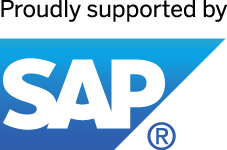European Code League
We invited you and your students to get creative and present your innovative coding projects for STEM lessons in primary and secondary schools at the European Code League.

Get an overview of the information on this page:
- About the European Code League
- The video about the final
- The teams and their projects
- The categories
About the European Code League
A jury has selected ten teams from numerous applications. The virtual final took place on 28 May, where the question was answered: What is Europe's best coding concept?
The Romanian team "Caelify" won first place. In their project the students measured different air parameters such as concentration of CO2, humidity, pressure, temperature, noise, and other noxious substances in their town, using sensors. The data was transferred to a server so the students could access and work with it at any time.
The teachers will now participate in the European Science on Stage Festival 2022.
The video about the final
The teams and their projects
Belgium: Philippe Wilock and Chistof Laeremans, Centre Scolaire du Sacré-Coeur, Charleroi: Coding the life
Croatia: Davor Šijanović and Sanja Pavlović Šijanović, Gymnasium Vukovar, Vukovar: Smart City of Vukovar - our view of smart living
Germany: Carolin Möbus und Heiko Stangl, Hector Seminar, Mannheim: Foxfire: Browsing glowing woods
Florian Stupp, Otto-Hahn-Gymnasium, Böblingen: Your environmental Foodprint
Greece: Astrinos Tsoutsoudakis and Ioannis Tzagkarakis, Lower Secondary School of Gazi; Model Lower Secondary School of Heraklion, Kreta: Quake Alarm
Hungary: Dr. Károly Piláth and Fanni Vitkóczi, ELTE Trefort Ágoston Gyakorló Gimnázium, Budapest: A redesigned potential chart
Portugal: Inês Madaleno and Samuel Branco, Externato Cooperativo da Benedita, Benedita: Atmosphere Control of a House
Romania: Mihaela Giurgea and Dr. Corina Toma, Tiberiu Popoviciu "Computer Science High School, Cluj Napoca: CaeliBox
Catalina Stanca and Mihaela Ciapa, National College "Alexandru Ioan Cuza", Galati: Modern Kitchen
Turkey: Merve Özer and Ceyda Fidan, Doku Schools, Öveçler/Çankaya, Ankara: Good Posture
Find all project descriptions here
Memo
In the evaluation process a jury chosed the final teams using the following criteria:
- Quality of the project (relevance of the topic, sustainibility and outreach of the project, didactic approach, learning experience for the students etc.)
- Creativity (innovativeness of the project and the implemantation)
- Active involvement of the students (inquiry based learning, teamwork, design thinking, project work etc.)
- Presentation of the result (content and quality of the poster and video)
The categories
- Fundamental Science in 1’s and 0’s
How does the world around us work? Students simulate, analyse and explore scientific phenomena using digital tools. - Microcontrolling the World
How do we use digital tools to connect with the world around us? Students design, code and build various applications to interact with their environment (Internet of Things, human-machine interface, remote control and automation, artificial intelligence, etc.) - Environment 4.0
How can we use digital tools to explore and protect nature and our environment? (Implementation of simulation, microcontrollers, sensors etc. for environmental aspects)
Find mote inspiration in the teaching material 'Coding in STEM Education'.
